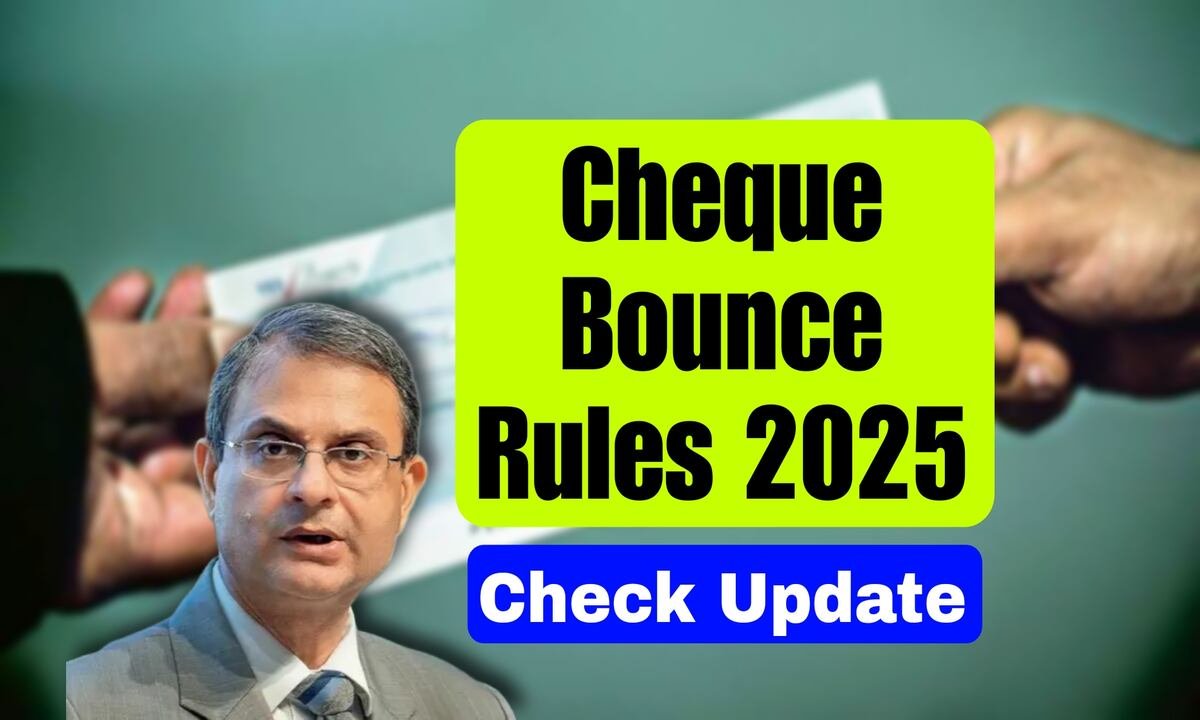Cheque Bounce Rules 2025 : With an aim to facilitate transparency and bring accountability into financial transactions, the Indian Government has introduced a fresh set of Rules on Cheque Bounce for 2025. These newer rules are meant to reduce fraud, bring speedy disposal of disputes, and provide safety to the bankers and their customers alike. Hence, if you are one who gives or receives cheques quite often, it is imperative that you understand the changes that are being introduced and how they may impact you.
What Is A Cheque Bounce And Why It Matters
When a cheque is presented for payment, but the issuing bank turns down the payment, it is called “cheque bounce.” Some of the most common reasons include insufficient funds, mismatched signatures, overwriting, or accounts that do not exist anymore. Under the Negotiable Instruments Act, cheque bouncing constitutes a criminal offense, and the payee can seek legal redress against the issuer.
Over the recent years, there has been an increase in the number of cheque bounce cases, lengthening the court process as the cases drag on, leaving parties financially uncertain. The Cheque Bounce Rules 2025, therefore, seek to ease such processes while holding the parties guilty of bouncing the cheque more accountable.
What’s New In Cheque Bounce Rules 2025
The key updates introduced in 2025 that every cheque issuer and recipient must keep abreast of are:
- Increased Adulteration of Punishment : Penalties for bounced cheques have increased. One who defies may be subject to nil beyond twice the amount of the cheque or have imprisonment for two years, or both concomitantly. Repeat offenders will meet with graver penal consequences.
- Speedy Resolution : Fast-track courts specially for cases of cheque bouncing have been established. Most cases could be disposed of in 90 to 120 days, to ensure timely administration of justice.
- Validity of Notice Through Digital Mode : In 2025, legal notices sent through email or registered mobile apps (along with delivery proof) have been declared valid. This minimizes the delay in giving notice to the issuer.
- Impact on Credit Score : The incidence of bounced cheques will henceforth be reported to credit information bureaus. Once reported, bouncing a cheque may adversely affect the issuer’s credit rating, which may hamper his ability to get a loan or to get a credit card.
- Online Tracking System : The RBI has established an online platform to track cases of cheque bounce, where courts hold proceedings against the cheque bounce accusation, so that people who have filed complaints can check the status.
How These Rules Help The Public
These revised provisions provide a much-needed shield and clarity for honest men and women and small businesses. Recovery of money by small-scale traders, vendors, and landlords, who mostly depend on post-dated cheques, will now become relatively easier, whereas lengthy legal procedures will be avoided.
Ms. Rina Mehra, a freelance graphic designer from Mumbai, said:
“At one point in time, I had lost ₹75,000, owing to an unfortunate occurrence in the form of a bounced cheque. Today, I feel that these new laws extend a ray of hope to folks such as myself that we shall no longer be taken for granted.”
Also Read : Tata Punch EV Car Launched With 420Km Range, Best In Features, See Price
